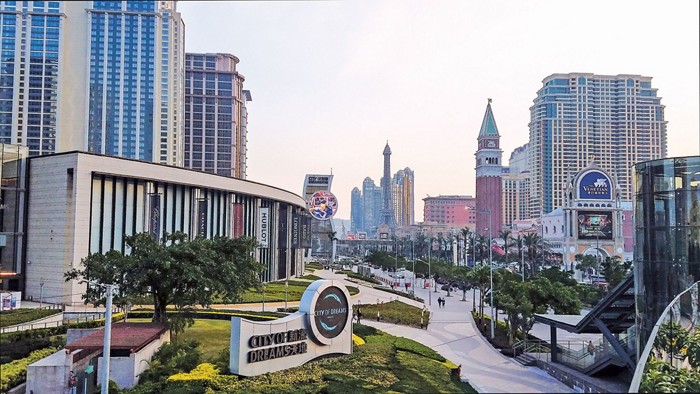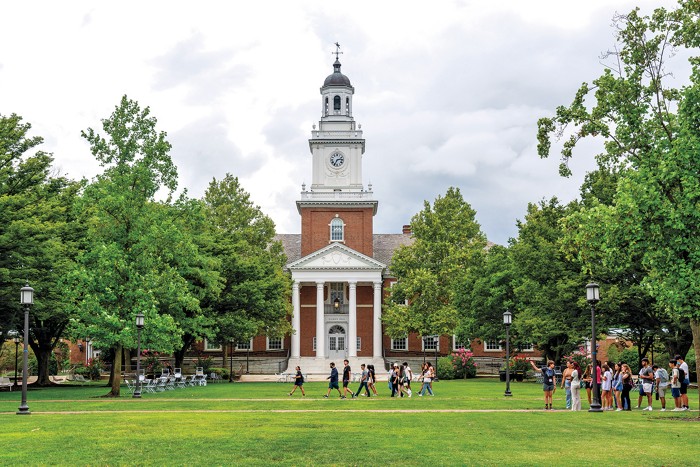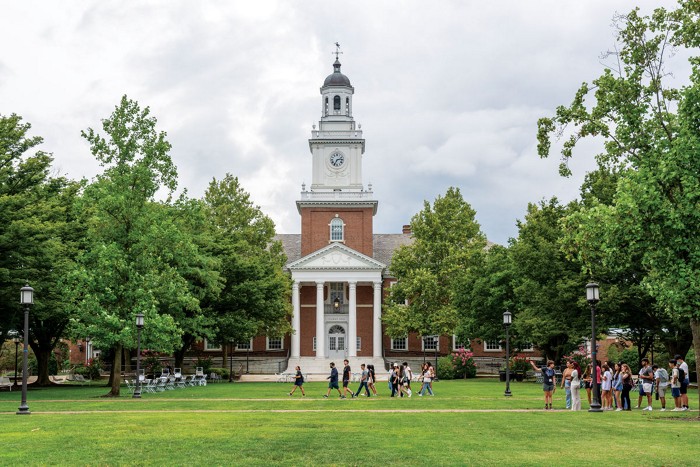Advertisement
Grab your lab coat. Let's get started
Welcome!
Welcome!
Create an account below to get 6 C&EN articles per month, receive newsletters and more - all free.
It seems this is your first time logging in online. Please enter the following information to continue.
As an ACS member you automatically get access to this site. All we need is few more details to create your reading experience.
Not you? Sign in with a different account.
Not you? Sign in with a different account.
ERROR 1
ERROR 1
ERROR 2
ERROR 2
ERROR 2
ERROR 2
ERROR 2
Password and Confirm password must match.
If you have an ACS member number, please enter it here so we can link this account to your membership. (optional)
ERROR 2
ACS values your privacy. By submitting your information, you are gaining access to C&EN and subscribing to our weekly newsletter. We use the information you provide to make your reading experience better, and we will never sell your data to third party members.
Research Funding
Science in Macau wins big with indirect funding from casinos
Gambling hub supports basic research to improve its universities’ rankings and attract companies
by Jean-François Tremblay
April 23, 2018
| A version of this story appeared in
Volume 96, Issue 17

Mention Macau to someone familiar with the southeast China resort city, and you might conjure images of slow Sunday afternoons spent sipping wine or enjoying Portuguese fare. More likely, you’d bring forth images of the Cotai Strip, a glitzy, wide boulevard lined with casinos that in recent years, together with gaming centers in other parts of Macau, have brought in three times the gambling revenue of Las Vegas. One image the former Portuguese trading post probably wouldn’t bring to mind is science.
But a reputation as a science hub is exactly what Macau is striving for. Since developing its first strategic science plan nearly 20 years ago, Macau has spent aggressively on building labs that, the government hopes, will attract world-class scientists and bright students. The city has already fitted some of its universities’ science departments with instrumentation that academics elsewhere would envy.
“Good facilities attract faculty and students,” says Yi Zhun Zhu, dean of the School of Pharmacy at Macau University of Science & Technology (MUST). The School of Pharmacy started accepting students in 2016. “The equipment we have here is better than at top international universities I’ve visited,” adds Zhu, who was dean of the School of Pharmacy at Fudan University before coming to Macau. He was at the National University of Singapore before that.
Few universities could claim vistas as odd as MUST’s. Macau occupies a mere 30 km2 of land, leaving city planners few options for finding a home for MUST, which opened its doors in 2000. As a result, the university now sits adjacent to the Cotai Strip. Casino complexes tower over the campus, half surrounding it. Going to or leaving their labs, researchers have a view of the gambling facilities that indirectly fund them. The older University of Macau, opened in 1981, sits about 6 km away from the Cotai Strip and also has casinos nearby.
While MUST’s surroundings lend a Vegas-like atmosphere, under the university’s roofs are some serious research labs. MUST’s School of Pharmacy, for example, could entice researchers focused on developing modern pharmaceuticals from natural products. The new labs are equipped with highly sophisticated—and costly—instruments, several of which aren’t found elsewhere in Asia, according to staff. These include a time-of-flight secondary-ion mass spectrometer, which was custom made in Germany for the school. Another costly instrument combining several technologies is a liquid chromatograph coupled with a quadrupole time-of-flight mass spectrometer, a powerful tool used for profiling complex mixtures.
Yun He, dean of the School of Pharmaceutical Sciences at China’s Chongqing University, agrees that MUST has top-notch lab equipment. “If one has great ideas and passion, he or she could do great research there,” says He, who previously worked for multinational drug firms like Abbott and Roche.
Zhu says he agreed to move to Macau partly for the opportunity of being the first dean of MUST’s School of Pharmacy. More important, he says, was the promise of generous research funding. While at Fudan, Zhu and his team researched the cardioprotective effects of leonurine, an alkaloid extracted from the traditional Chinese medicine motherwort. Their work yielded a drug candidate that they licensed to a Chinese drug firm. In Macau, he and his team are now developing a drug candidate against rheumatism that is also derived from a traditional Chinese medicine.
Advertisement
MUST is home to the State Key Laboratory of Quality Research in Chinese Medicines, a China-sanctioned entity that provided much of the instrumentation that Zhu uses in his research. Additionally, the Macau government doles out as much as $60,000 for individual basic research projects. “This excludes paying for equipment, because we already have it, consumables, and utilities,” Zhu says.
Macau’s $30 billion annual casino revenue pays for most of its government budget, which means that, indirectly, the casinos pay for scientific research in the city. The tax revenues provided by gambling are so large that the 600,000 residents of Macau not only pay no income tax but also enjoy free health care and receive a check of $1,000 per year, courtesy of the Wealth Partaking Scheme policy.
Scientists seeking funding for specific projects obtain it through Macau’s Science & Technology Development Fund (FDCT), a government agency with a budget of $28 million per year and climbing. This may not seem like a lot given that the budget for the National Natural Science Foundation of China—one of the main funding agencies in the country—is $4 billion. But Macau’s FDCT funds researchers in a relatively small city where only two universities, already well endowed, engage in scientific research. FDCT funds about one-third of the requests it receives.
The main goal of FDCT is to improve the global rankings of those two universities, says Frederico C. N. Ma, the president of the fund’s administrative committee. “The funding attracts scholars, and after they come here, they publish, which raises the rankings,” he says. “The University of Macau has risen tremendously since we started,” he adds.
FDCT was originally created to counterbalance casinos and tourism in Macau’s economy. FDCT’s immediate priorities are to finance what Ma calls foundational science—mathematics, biology, chemistry, and other basic fields. Another long-term objective is to foster the creation of companies in Macau making use of research originating in university labs. Ma admits this goal will take time to achieve. For now, he says, bringing products to market isn’t succeeding as much as the casinos.
Macau’s science funding push has had some early success at attracting international talent. All the faculty at MUST’s School of Pharmacy was trained at top universities in the U.S. and Europe, Zhu says. In addition, Erwin Neher, who won half the 1991 Nobel Prize in Physiology or Medicine for recording electrical currents from individual ion channels in live cells, has a lab in the department, where he holds the title of Distinguished Professor. “He came to our university to give a lecture, and when he saw the facilities, he thought that traditional Chinese medicine should be studied in China,” Zhu says.
Constantly being surrounded by casinos isn’t distracting, Zhu says. At MUST’s urging, Macau passed a law in 2012 that raised the minimum age for gamblers from 18 to 21, he says. The majority of his students spend most of their time in the lab, eat at the school cafeteria, and stay in university dorms, he adds. As for the view of the casinos, Zhu says: “We just get used to it.”





Join the conversation
Contact the reporter
Submit a Letter to the Editor for publication
Engage with us on Twitter